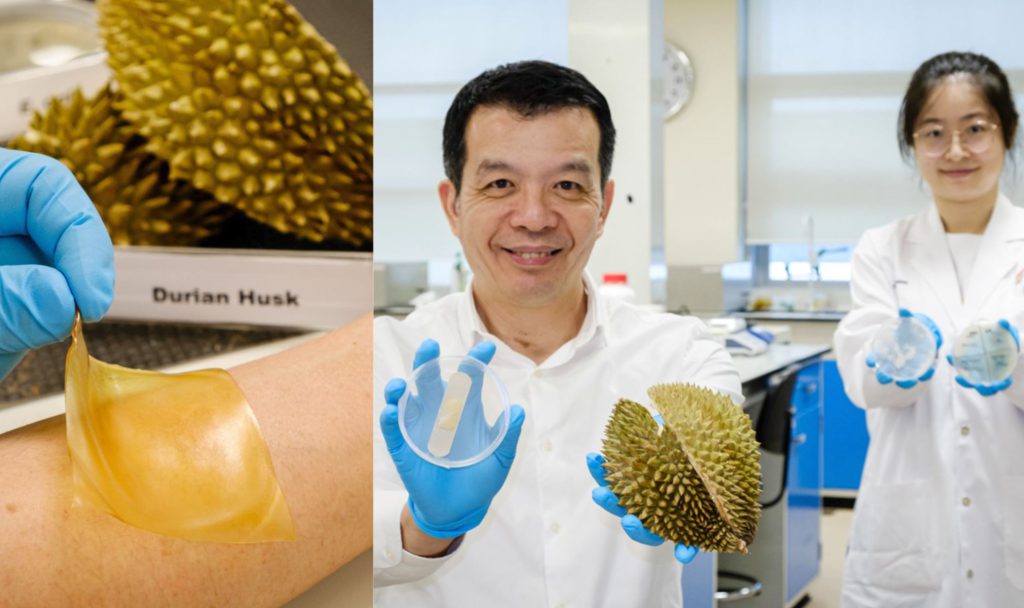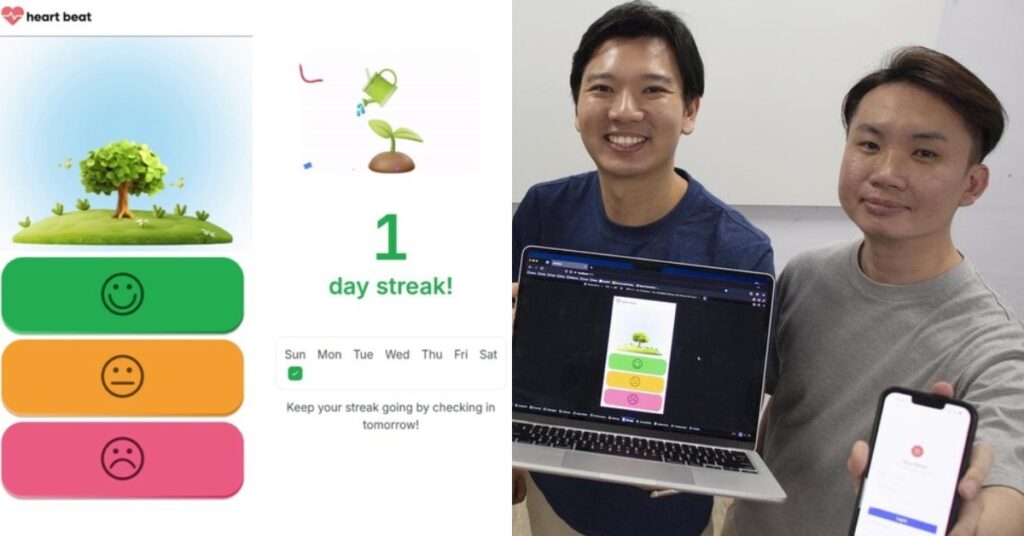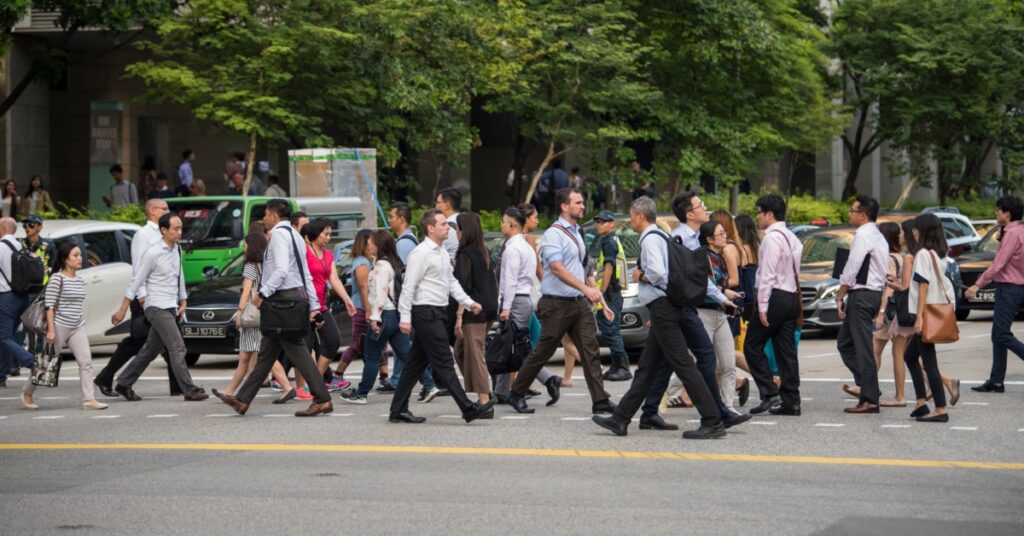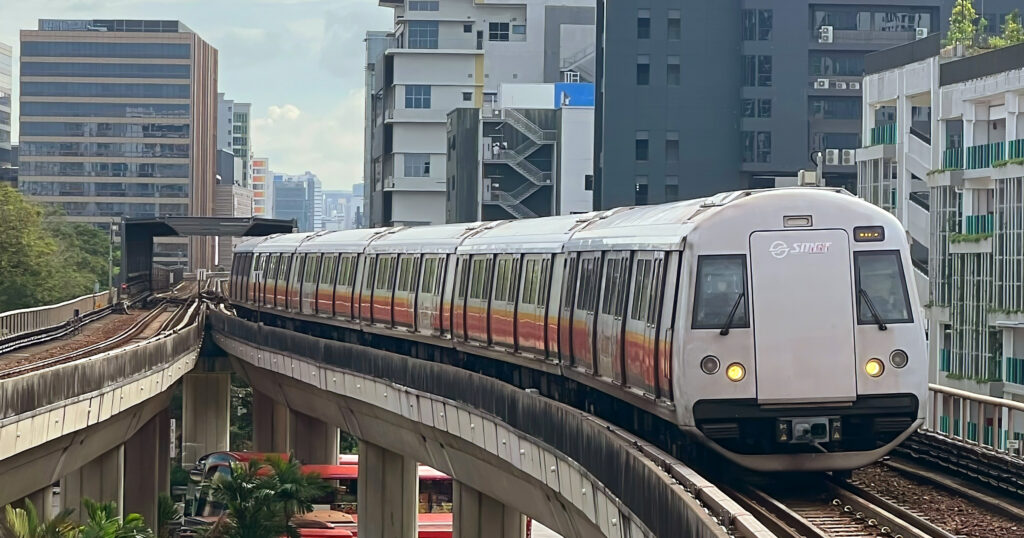You might soon be able to buy these antibacterial bandages made out of durian husks at supermarkets and pharmacies.
Yes that’s right, the durian husks Singaporeans throw away after feasting on their Mao Shan Wangs and D24s will be given a new lease of life – this time in the form of easing our wounds.
First durians heal our stomachs, now they can also heal our cuts and scrapes. Thank you mother nature and the power of science.
Professor William Chen, the Michael Fam professor and director of the Nanyang Technological University’s (NTU) Food Science and Technology Programme told Vulcan Post that this research breakthrough might potentially be sold in supermarkets soon.

When asked if the product is under a patent yet, William said: “The innovation is protected by technology disclosure and it is already approved and being licensed out to a local food company to scale up.”
“Based on successful commercialisation of our other tech innovations, we are confident that durian husks based bandages would be another successful story,” said William. “The main reasons for our successful commercialisation are that our innovations are simple and cost effective and also because we have been working with experienced industry partners.”
Using food waste to create products into bandages, when scalable, is also set to be a tough contender to other healthcare competitors in the market.
Why durians of all things
To answer our question on why the “random” choice of using durian husks, William shared an eye watering fact: that Singapore consumes 12 million durians a year. “The husks are largely disposed of as general waste in incinerators, this adds to a massive amount of carbon footprint.”
To mitigate the issue of so much food waste, William and his team looked at experimenting on these bulky discarded shells. Durian husks can account for about 60 to 80 per cent of the fruit’s weight and are high in fibre.

“The platform technology extracts cellulose from fibre rich raw materials, like soybean residues, brewer’s spent grain, and durian husks,” William said.
When pressed on why the king of fruits and not any others, he mulled that other types of products or fruits, as well as discarded products can also be researched to convert into antibacterial bandages. “As long as they have a high level of fibre,” he said.
The research was not a walk in the park for the scientists at NTU Food Science and Technology Programme, having spent about three years before being able to show the current results.
These bandages were developed in line with Singapore’s push towards creating a “zero-waste food processing circular economy”.

William noted that the innovation – to turn durian waste into antibacterial bandages – is a breakthrough, as seen with worldwide media coverage by the likes of Reuters and the World Economic Forum.
How do they do it
After the durian husks are sliced and freeze-dried, a process extracts cellulose powder from the products.
The husks are converted into “high-quality” cellulose powder through slicing, freeze-drying, ball-milling, and the removal of impurities.
The powder is then mixed with glycerol and the mixture becomes soft hydrogel, which is then cut into bandage strips.

The scientists subsequently add organic molecules produced from baker’s yeast, making the bandages deadly to bacteria.
Hydrogel is known to help wounds heal faster as the water content in the gel keeps the wound area cool and moist. This component is also known to reduce scarring.

The use case for these hydrogels go beyond just bandages, as there are various applications, including for wound dressing and even wearable electronics.
Biodegradable, cheap, and eco-friendly
The low-cost bandage is both biodegradable and non-toxic, which means it has a smaller environmental footprint than conventional synthetic bandages, William said. They also provide a more “natural” solution to healing from wounds.
Conventional hydrogel patches on the market are made of synthetic materials. Those with antimicrobial properties use metallic compounds like silver or copper ions.
These materials make conventional hydrogel patches more costly than the “durian waste” hydrogels, which are made from natural materials.

This means that manufacturers can expect a “significant reduction” in cost compared to traditional methods.
According to William, the traditional method of using enzymes costs about S$27,000 per kilogram, while the school’s research method costs about S$120 per kilogram to extract the same amount of cellulose.
To break it down simply, a three kilogram durian for example, can create 200 grams of husk powder, of which 40 grams are pure cellulose. This 40 grams are enough to make around 66 pieces of seven cm by seven cm hydrogel patches, which will be enough material to spread over 1,600 regular plasters.

He added that the bandages are biodegradable, and as they are organic in nature, they are expected to have a smaller environmental footprint than conventional synthetic bandages.
Anti-durian people fret not, the bandages don’t smell like the fruit
As for readers who have been going all cringy reading this article because of the fear of the smell of durians next time when a commuter next to you is wearing this “hip” natural bandage on his wound, you don’t have to worry about that.
According to William, the bandages are odorless. There are certainly no plans to introduce antibacterial bandages that come with the smell of durians, although that may be quite a snack.
Get $20 off your order on VP Label when you checkout with Pace and the code PACEVP20 (min spend $80). Discover and shop exciting homegrown brands now:
[iframe_vp_product src=”https://vulcanpost.com/label/embed-all/” id=”iframe1″]
Featured Image Credit: Nanyang Technological University










